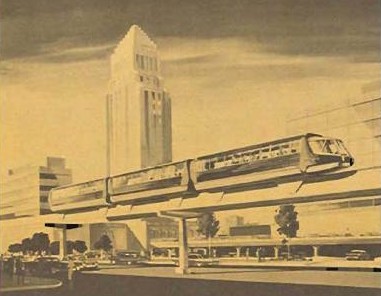
Billionaire Ed Roski seems bound and determined to give those people opposed to the construction of a new stadium to lure an NFL team back to Greater Los Angeles plenty of cause for concern. Recently, Roski's lobbyists have been pushing Sacramento law makers to grant exemptions from environmental and planning requirements for his mega-stadium project in the City of Industry.
Roski apparently feels that his stadium is such a pressing need, that an NFL team is just chomping at the bit to move to Los Angeles, that the stadium needs an exemption from the City of Industry's General Plan and from the state's CEQA requirements. A quick search of sports websites such as ESPN.com and NFL.com reveals absolutely no buzz about an NFL team planning to move or the NFL planning to expand by adding more teams.
The reaction to Roski's proposed environmental dodge has been a mix of in-credulousness to outrage. Heck, even the L.A. County Board of Supervisors found time to pass a resolution against the plan. However, the leading voices against Roski's end round come from the environmental community. The NRDC's David Petit demolishes the argument that they need an environmental exemption because those sort of pesky things just slow up the process.
And yet, development projects are completed all the time inCalifornia. The CEQA process is not just a paperpushing waste oftime: it can improve projects, as we have seen repeatedly at the portsof Los Angeles and Long Beach.
Nearly every law carries with it the possibility of meritlesslitigation. Should the civil rights laws be abolished because somelosing cases are filed?
Equally troubling is that the request for special treatment for theCity of Industry stadium is being pushed in the last week of theCalifornia legislative session, with a joke of a public "hearing" thatonly Capitol insiders will be able to attend. Why the sudden rush?
Also picking up a sword against Roski's misdirection was the Times, which editorialized against the proposed in today's paper.
Exempting the stadium from state environmental review would cut thepublic out of the process and free the developer from having tomitigate serious environmental consequences. The project would still besubject to review by the city of Industry, but things like traffic andair pollution don't confine themselves to one city; streets andfreeways in the vicinity would almost certainly be jammed on game days,for example, and surrounding cities have a right to participate indecision-making and demand action to reduce the problems.
Back in February, Streetsblog discussed some of the protections that would be needed to protect communities from a traffic crush that would result from game day or other special event traffic created by a 75,000 seat stadium and accompanying parking lot. Included in our suggestions were the creation of a feeder bus network, a traffic plan that protects the local streets of the surrounding communities and a plan to support transit options with a public relations and ticket sales campaigns. It's highly doubtful any of these options would get serious consideration without an environmental review forcing the developer to face the issue.
The good news is that these types of proposals, the ones that are aimed at reducing public involvement, only grow in the dark recesses of Sacramento. Thanks to the multiple efforts to shine light on Roski's feint, it is unlikely the legislation will get introduced, heard and passed tomorrow; the deadline for new legislation.
However, we'll be keeping our eyes open in Sacramento and thanks to stadium backers announcing that their nervois about the stadium's environmental reviews we'll be sure to keep an eye on their plans as they move through the process.





